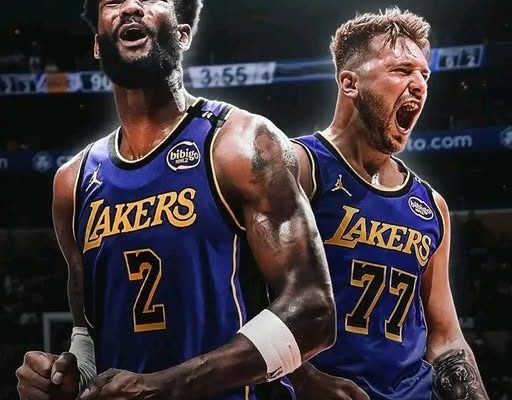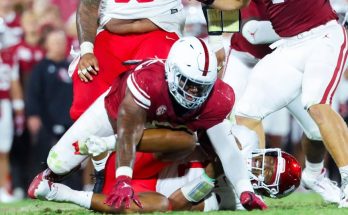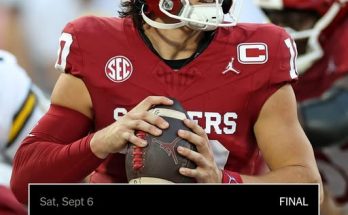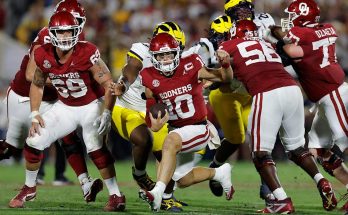Deandre Ayton’s statement—“I bring dominance. My name is DominAyton. Me and Luka is the next Kobe and Shaq”—sent shockwaves across the basketball world, not only for its boldness but also for the weight of comparison it invoked. Shaquille O’Neal and Kobe Bryant are more than just NBA legends—they represent one of the most iconic and dominant duos in league history. To mention them as a frame of reference for what he and Luka Dončić could become isn’t just confidence; it’s an announcement, a warning, and a promise rolled into one. Whether fans take that seriously or scoff at the audacity, the implications of Ayton’s words are worth exploring in the context of basketball history, chemistry, and what this pairing could actually mean for the future of the NBA.
Deandre Ayton, once viewed as a cornerstone for the Phoenix Suns franchise, entered the league in 2018 as the No. 1 overall pick. Despite flashes of dominance in the paint and steady statistical production, his time in Phoenix was marred by inconsistencies, coaching conflicts, and questions about motor and effort. The tension peaked during the Suns’ Finals run in 2021 and eventually led to his exit after being traded to the Portland Trail Blazers, where his impact was muted amid rebuilding efforts. Fast forward to now, the narrative has shifted again, and Ayton seems revitalized with a clear message: he’s ready to dominate. Not just contribute—dominate. Hence, the nickname “DominAyton.”
What’s equally intriguing is Ayton attaching his resurgence to Luka Dončić, the Dallas Mavericks’ transcendent guard, already regarded as a generational talent. Luka has drawn comparisons to legends like Larry Bird, Magic Johnson, and even LeBron James in terms of vision, skill, and leadership. Pairing that kind of playmaker with a big man who genuinely believes he can impose Shaq-like dominance on the paint opens up tantalizing possibilities.
Ayton’s “next Kobe and Shaq” comparison is especially powerful when broken down. Kobe and Shaq were polar opposites in many ways—Shaq was a massive force of nature who imposed his will physically, while Kobe was surgical, cold-blooded, and relentless in his pursuit of greatness. Despite their well-documented interpersonal friction, their combined force brought the Los Angeles Lakers three consecutive championships from 2000 to 2002. The pair was practically unstoppable when locked in: Shaq commanded double and triple teams, opening lanes and perimeter opportunities, while Kobe dismantled defenses with mid-range pull-ups, isolation footwork, and clutch heroics.
Translating that dynamic to Luka and Ayton is aspirational but not completely out of reach. Luka has already proven capable of handling the role of an offensive maestro, navigating pick-and-rolls with the poise of a 10-year vet despite being in his mid-20s. What he’s needed is a reliable, athletic big who doesn’t just roll but can seal off defenders, rebound effectively, protect the rim, and finish with authority. That’s where Ayton’s promise comes in—if he’s truly ready to accept that role and deliver night after night.
The Mavericks’ recent roster construction shows clear signs that they’re shifting toward a more balanced attack. With Kyrie Irving still part of the backcourt and complementary shooters around them, inserting a physical presence like Ayton in the middle of it all changes everything. If Luka can trust Ayton to consistently anchor the paint on both ends, it allows him to conserve energy, reduce forced shots, and open up Dallas’ offense in ways Kristaps Porziņģis or Dwight Powell never could. Ayton gives Luka what Shaq gave Kobe—space, verticality, and physical dominance.
But talking the talk and walking the walk are two different things in the NBA. Dominance is earned, not self-proclaimed. Ayton has the tools. He has the size, the mobility, the touch around the rim, and even flashes of mid-range ability. But too often, fans and analysts have seen him settle, disappear for quarters, or fail to assert himself on the boards. Shaquille O’Neal averaged 27 points and 11 rebounds during his prime Lakers years, but more importantly, he changed the game by breaking defenses, wearing opponents down, and setting a physical tone. For Ayton to even begin to fit that mold, he must commit to doing the unglamorous things consistently—fighting for position, rotating with urgency, taking contact, and embracing the dirty work.
Then there’s the emotional component. Shaq and Kobe didn’t win because they were best friends. They won because they respected each other’s greatness and, for a time, made their differences work. Luka and Ayton will have to find their rhythm, their understanding, their shared mission. Luka isn’t Kobe in terms of demeanor—he’s more easygoing on the surface—but his competitiveness runs deep. He’s carried teams far without having a dominant big man beside him. If Ayton really wants to become Luka’s Shaq, he’ll need to adapt to Luka’s leadership style while still holding himself accountable.
Another interesting layer here is the choice of words in Ayton’s statement: “Me and Luka is the next Kobe and Shaq.” The grammatical awkwardness may catch attention, but the message is bold. He didn’t say they can be or might be—he said they are. That kind of certainty is rare and, when backed by work ethic, can be powerful. The NBA thrives on narratives, and Ayton has just created a big one. If he backs it up, this story becomes legend. If he doesn’t, it becomes another example of misguided bravado.
The Mavericks’ fan base should be cautiously optimistic. They’ve seen Luka carry subpar rosters deep into the playoffs and have long craved a reliable frontcourt presence. If Ayton is truly entering a new phase mentally—if “DominAyton” isn’t just a tagline but a mindset—then Dallas could become a true powerhouse in the West. Ayton doesn’t need to be Shaq in every way; he needs to be the best version of himself, unlocked by Luka’s genius.
The league should also take notice. The Western Conference is stacked with elite big men—Nikola Jokić, Anthony Davis, Rudy Gobert, Karl-Anthony Towns. If Ayton wants to be considered in that tier, he must dominate those matchups. This isn’t college or year one in the league anymore. This is a grown-man league, and you only earn the right to call yourself dominant when your peers fear you.
Off the court, Ayton’s branding effort is smart. “DominAyton” is catchy. It’s meme-worthy. It captures attention. But again, brands stick when performance validates them. Kobe created the “Black Mamba” persona after years of killer instinct and clutch shots. Shaq created countless nicknames for himself—“The Diesel,” “Shaq-Fu,” “The Big Aristotle”—but always justified them with unmatched presence. Ayton now joins that lineage with a nickname that makes a claim. It’s his job to justify it every night he steps on the floor.
In a league built on legacies, pairings like Luka and Ayton can alter history if they click. Think of the iconic duos—Jordan and Pippen, Malone and Stockton, Curry and Thompson, LeBron and Wade. All of them brought something unique and meshed it into something greater. If Ayton’s comment is more than soundbite hype—if he really brings “dominance” and thrives under Luka’s orchestration—then the “next Kobe and Shaq” line won’t seem so far-fetched in retrospect.
Until then, the basketball world will be watching. Critically. Skeptically. Eagerly.
Because when a player says something as audacious as Deandre Ayton just did, he’s not only raising expectations—he’s challenging everyone else to prove him wrong. And in the NBA, those challenges often produce the most unforgettable chapters. Whether this is the start of dominance or delusion, only time—and Ayton’s actions—will tell.



